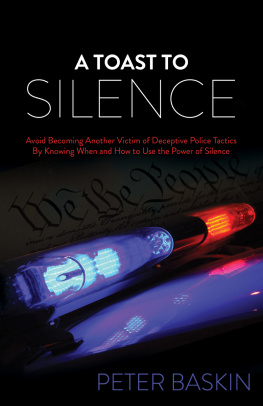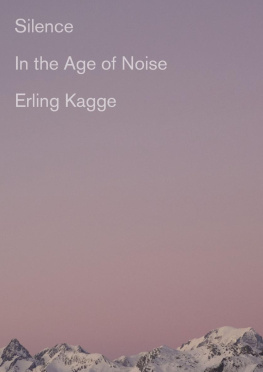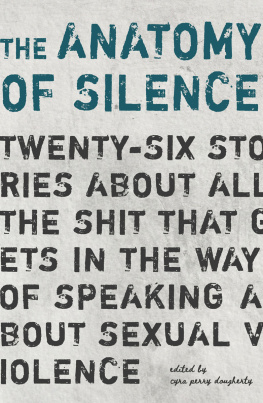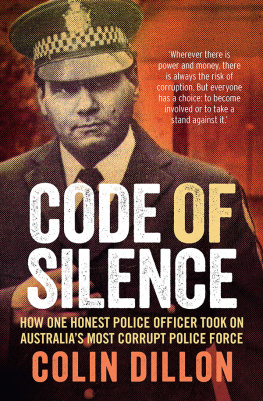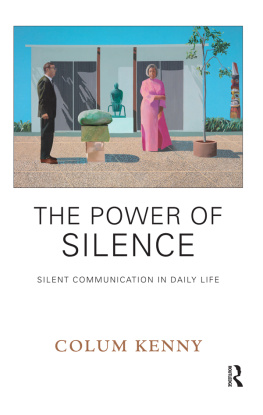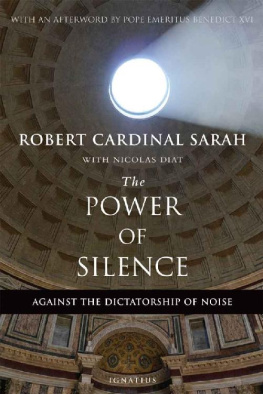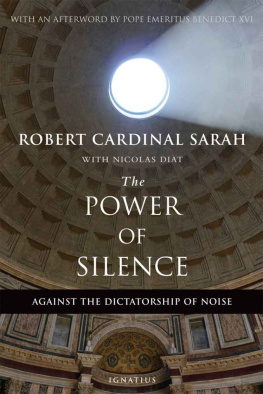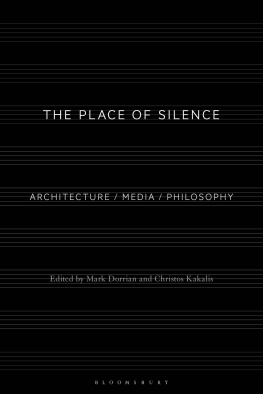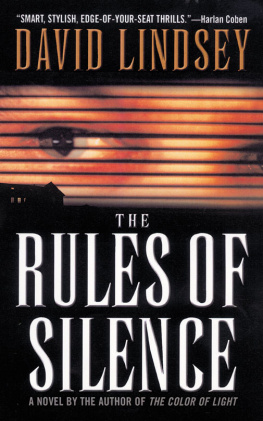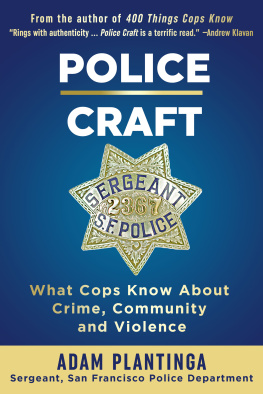A TOAST TO SILENCE
A TOAST TO
SILENCE
Avoid Becoming Another Victim of Deceptive Police Tactics
By Knowing When and How to Use the Power of Silence
PETER BASKIN

NEW YORK
LONDONNASHVILLEMELBOURNEVANCOUVER
A TOAST TO SILENCE
Avoid Becoming Another Victim of Deceptive Police Tactics By Knowing When and How to Use the Power of Silence
2016 PETER BASKIN .
All rights reserved. No portion of this book may be reproduced, stored in a retrieval system, or transmitted in any form or by any meanselectronic, mechanical, photocopy, recording, scanning, or otherexcept for brief quotations in critical reviews or articles, without the prior written permission of the publisher.
Published in New York, New York, by Morgan James Publishing. Morgan James is a trademark of Morgan James, LLC. www.MorganJamesPublishing.com
ISBN 978-1-63047-768-4 paperback
ISBN 978-1-63047-769-1 eBook
ISBN 978-1-63047-770-7 hardcover
Library of Congress Control Number: 2015914121
Cover Design by:
Chris Treccani
www.3dogdesign.net
Interior Design by:
Bonnie Bushman
The Whole Caboodle Graphic Design

Morgan James is a proud partner of Habitat for Humanity Peninsula and Greater Williamsburg. Partners in building since 2006.
Get involved today! Visit
MorganJamesPublishing.com/giving-back
PREFACE
Mend your speech... lest it may mar your fortunes.
Shakespeare
Whats wrong with the following picture? Its 11 p.m. on Saturday and you and your spouse are driving home from a dinner party. Youre talking about the impressive quality of the bouillabaisse, or maybe who insulted who as the evening progressed. As you talk, you see ahead of you flashing police lights. You wonder if theres an accident. The traffic slows to less than a crawl. Then it occurs to you why. Its a police checkpoint. Theyre looking for drunk drivers. You think, Oh my God, I have had twomaybe three glasses of wine. What does that make my blood level? Will I be arrested? And you think, Damn, maybe I can make a U-turn and get out of it. But no, I see other officers. I shouldnt act suspicious. What do I do?
In a few minutes, youre at the checkpoint. You roll down your window. The policeman in charge shines his flashlight in your face. He says Good evening. May I see your license and registration? You say, Good evening, Officer, Ill get them. Then fumble through the glove compartment, and hand them to him. Trying to lighten the mood, you say, Gee, its pretty cold out there, your fingers must be freezing., or something as lame. He looks at your identification.
He says, Have you been drinking tonight, sir?
You say, I had a glass of wine.
He says, One?
You say, I think so.
He shines a flashlight in your eyes, and then says, Will you please step out of the car?
You say, OK.
He says, Id like you to take some tests for me.
You say, Is that necessary?
He says, Its in your best interest. You can prove here and now that youre okay.
You say, You fellows are doing a great job, I never want to be an impediment to law enforcement. Ill be happy to take any test you like.
So whats wrong with this? That you had two or three glasses of wine? No. That you didnt bolt, make a U-turn when you had the chance? No. That you lied about the number of glasses of wine you had? No. Lets play this picture again, the right way. You are driving home. You see the flashing lights. You realize its a police checkpoint for alcohol. You dont know if you are over the legal limit. But that really doesnt matter, not tonight. You and your spouse arrive at the point where the officer asks you for your license and registration. He says. Have you been drinking tonight, sir? And you say to yourself, I know what to do. A minute later, he lets you go. What exactly did you do? How did you beat the odds? Thats what this book is about.
Its about knowing what to say and do at the most critical moment in the life of every case; the initial encounter with the police. This is when the success or failure of your case in court is largely determined. Most people dont know.
Its about making sure you are not counted among the twelve million people who are arrested annually in the U.S. following a police encounter, nine out of ten of whom are convicted because they were seduced by police lies into giving evidence by talking and taking tests, before the Miranda warning.
This book is a long overdue blue print to end the trashing of your Fifth and Sixth Amendment Constitutional rights by the police on the street, and to winning your case in court when accused of a crime. It is a detailed guide to recognizing police deception. The emphasis is on the day-to-day work done in Americas criminal courts, which is out of the public eye. That day-to-day work overwhelmingly consists of traffic cases, misdemeanors, petty offenses, and alcohol and drug related misdemeanor offenses.
The focus is on the moment that the meeting between you and the officer begins. This is the critical time when your case is lost because you didnt know what to do, or not do, and what to say, or not say. This initial encounter is the beginning of the police gathering information and evidence against you. This moment should and can be the beginning of your successful defense. And what is the defense? It is not a Clarence Darrow summation by your lawyer in court. It is simply keeping your mouth shut, and not consenting to give evidence to the officer except giving your identity. Something that simple you are allowed to do.
I was hesitant, because of my regular contact and dealings with police officers in court, to use the words lie and disinformation to describe what most officers do during enforcement encounters with the public. But they are correctly used here. A lie is a deliberately false statement, something not true; disinformation is defined as information intended to mislead. Accordingly, lie is used throughout the text as the correct description of what police officers do when they confront you to obtain evidence with the definition of disinformation intended to be included.
There are countless books telling you what the law is, and hundreds written for lawyers. This book is not one of those. This book is written for folks who may need a lawyer, and will hopefully bring to the lawyers office a winning case by using the law to work for them. Read on and end being deceived. The new approach I am urging is; dont talk to the police! I have never seen a case or situation where in the final analysis youre better off by choosing to talk to the police as opposed to not talking to them. Remaining silent is your right under the Constitution and this applies to the time before officers arrest you , that is, before the Miranda warnings are read or recited. That may not seem like a significant space of time but it is, and it is addressed at the heart of this book.
What I hope to accomplish in the pages that follow is to convince you that you can do this, in spite of a system, entertainment industry, and a popular culture, which has succeeded in having you believe you cannot or should not do this and to recognize what is really happening to you at the hands of the police, the government, showing you how to survive and win in the criminal justice system.
I detail for you the verbal and psychological tactics and methods used to deceive you or to trick you into believing you cannot, or should not, insist on and exercise your Fifth Amendment right not to be a witness against yourself. I point out both the direct as well as the less obvious ways the media, in all of its forms, conditions us to believe that you cant or shouldnt remain silent. I tell you how to exercise your rights which the police will try to convince you dont exist. You will learn the lies, deceptions, disinformation and misrepresentations the police use to manipulate you to talk, do yourself harm, and cause you to lose in court no matter who is representing you. When you open your mouth, you give evidence against yourself, and you lose. When you talk, take tests, and cooperate, in any of its forms on the street, your case is doomed from that point. It is only by luck or unusual fortuitous circumstance that a win might occasionally happen.

